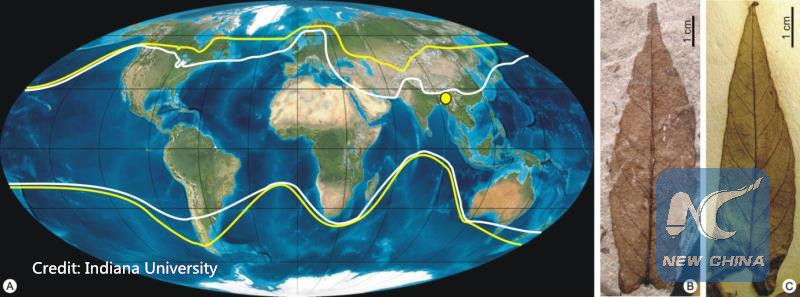
?
WASHINGTON, May 21 (Xinhua) -- New research published on Monday in the Proceedings of the National Academies of Science suggested that sweet potatoes may originate in Asia instead of the Americas, and much earlier than previously known.
Paleobotanists in Indiana University led by David Dilcher identified 57-milion-year-old leaf fossils from eastern India as being from the morning glory family, which includes sweet potatoes and many other plants.
The research suggested the family originated in the late Paleocene epoch in the East Gondwana land mass that became part of Asia.
"I think this will change people's ideas," Dilcher said. "It will be a data point that is picked up and used in other work where researchers are trying to find the time of the evolution of major groups of flowering plants."
Previous fossil evidence had suggested the morning glory family may have originated in North America about 35 million years ago. But molecular analyses had supported the idea that it originated earlier and in the Old World. The new research provides evidence for that conclusion.
The discovery also suggested the morning glory family and the nightshade family, which includes potatoes and tomatoes, diverged earlier than previously thought.
Together with the recent, separate discovery of 52-million-year-old nightshade fossils in Argentina, it revealed that morning glories developed in the East and nightshades in the West.
The 17 fossils analyzed in the study are the earliest recorded fossils for both the morning glory family, known as Convolvulaceae, and the order Solanales, which includes morning glories and nightshades.
Morning glory fossils are rare because the plants' soft structure was not easily preserved in rocks.
Dilcher's collaborators, Gaurav Srivastava and Rakesh C. Mehrotra of India's Birbal Sahni Institute of Palaeosciences, discovered the fossils in Meghalaya, a state in northeastern India.
The morning glory family is widely distributed in tropical and subtropical regions and includes about 57 plant genera and 1,880 species. The sweet potato is the world's second most important root crop, and other members of the family are medicinally and culturally significant.

